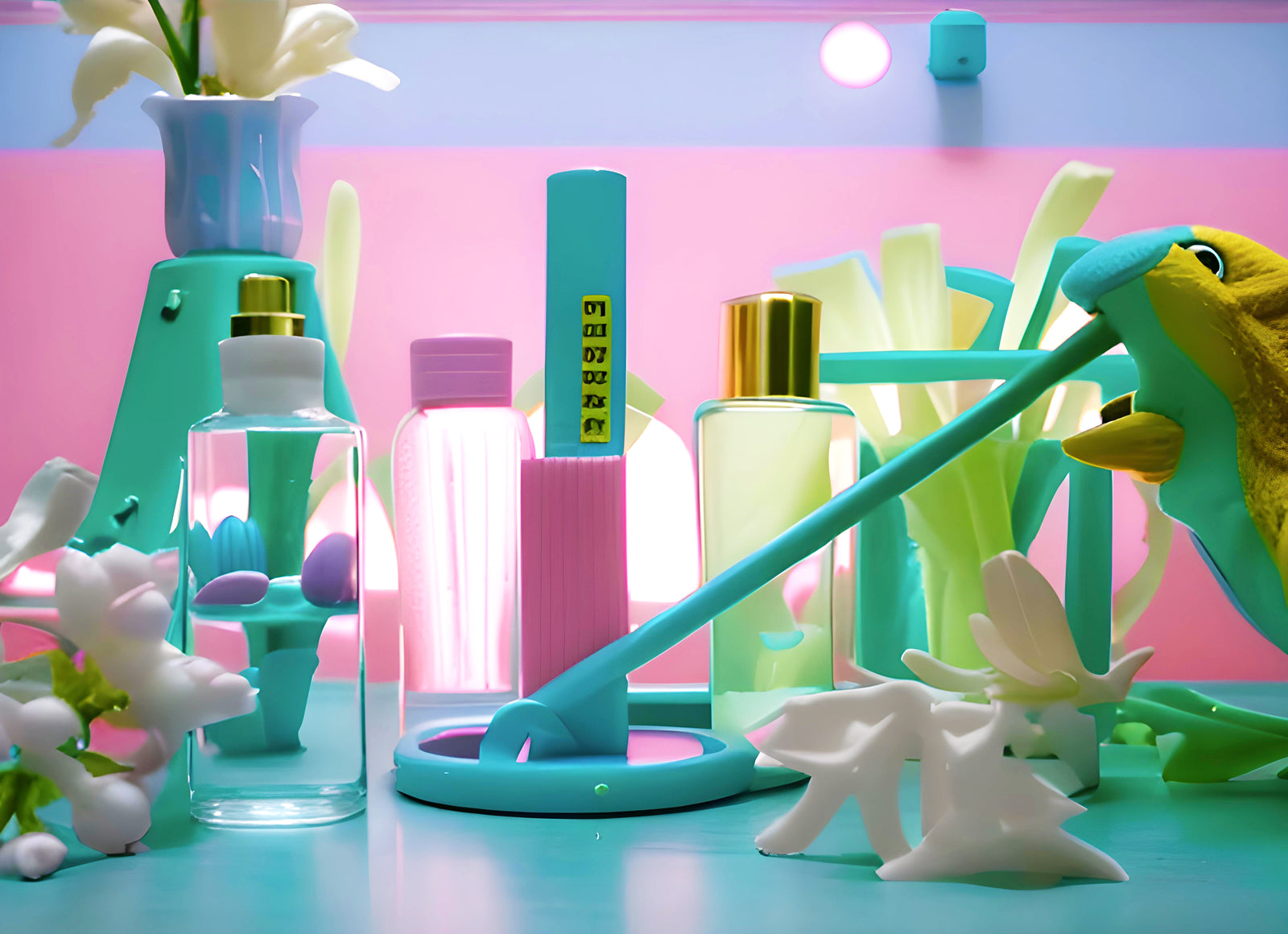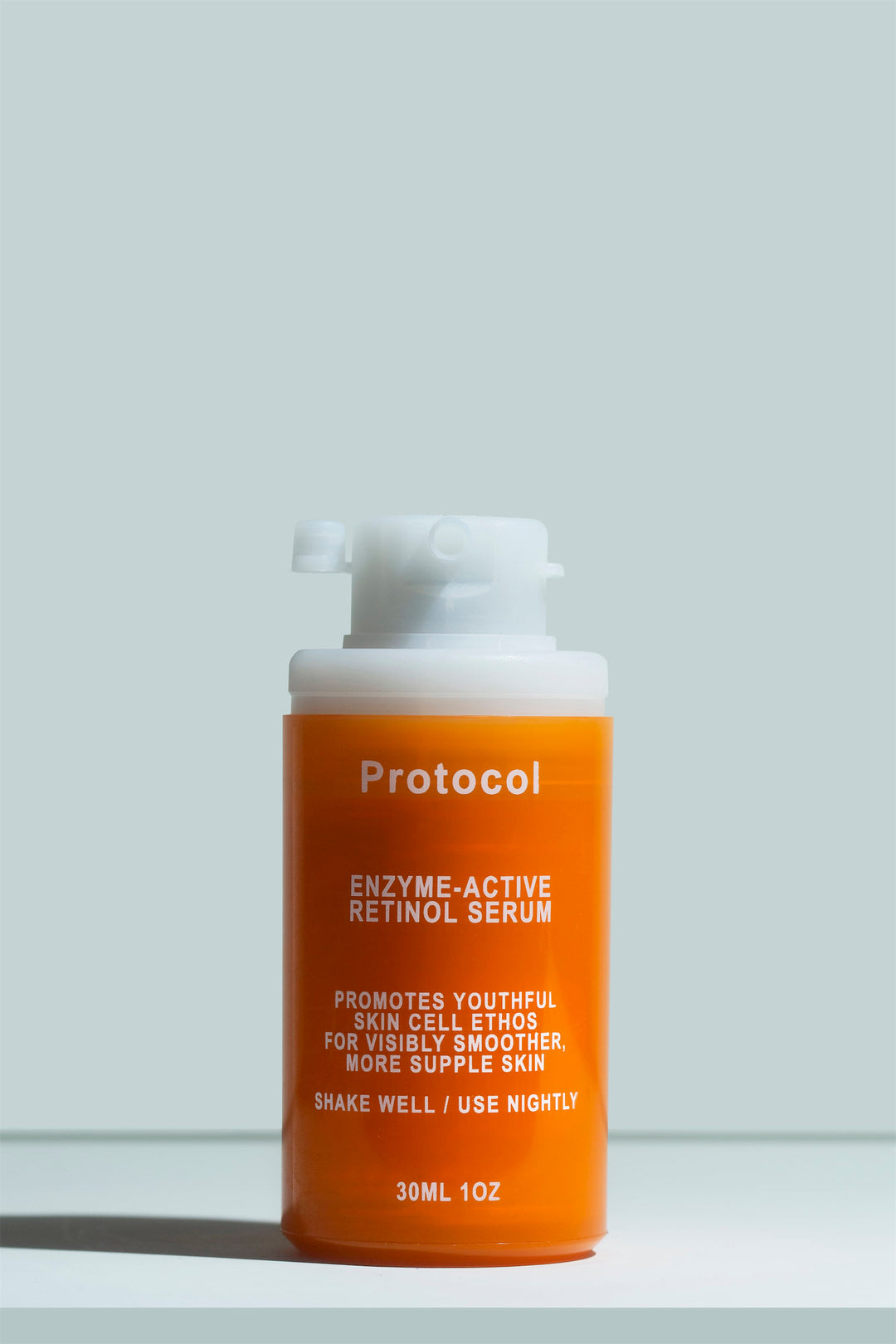Is Natural Skincare Good For You?

The term “natural skincare” sounds nice. It brings to mind this idyllic image of someone lovingly harvesting leaves or mixing plant oils in their kitchen, to create pristine serums or lotions. But is natural skincare really that great? Is it truly a safer choice? Does it even work?
Many people associate natural skincare products with a higher level of safety or gentleness, but once you dig deeper, you’ll learn it’s not quite so simple.
Places like Reddit’s skincare community and most skincare science blogs are quite critical of the concept of natural beauty. These spaces (and our team at the Lab) take an “evidence-based approach,” where science should come first. In this post, we’ll use that approach to dismantle the misconceptions associated with natural skincare.
What is natural skincare?
Natural or green beauty is a manufacturing philosophy where brands only use natural or naturally derived ingredients. The idea behind this is that natural is better and that synthetic or human-made ingredients are somehow harmful.
The terms “natural skincare” or “natural cosmetics” aren’t regulated, so there isn’t much consistency from brand to brand. For example, some companies still use a certain percentage of synthetic ingredients, while others avoid them completely.
Some natural beauty brands do follow specific formulation principles. They often leave out controversial ingredients (whether the controversy is justified or not). Some brands adhere to specific standards, like EcoCert or USDA Organic, which stipulate organic farming and production methods and allow the use of certain ingredients.
The problems with natural skincare
Most shoppers switch to natural beauty brands because of the belief that they’re safer. They assume that synthetic ingredients are dangerous because they’re synthetic, and that natural ingredients are safe simply because they're natural.
As any Philosophy 101 student can tell you, this is called the “appeal to nature” fallacy. It doesn’t only impact the beauty space, but also health care, food, household goods, and many other industries.
We have some major issues with how this fallacy impacts the beauty space, from the negative impact it has on products to how it harms scientific literacy.
Synthetics are actually fine
While there are certainly synthetic ingredients that can be dangerous, we have a lot of data about the safety of mainstream ingredients. In the US, the industry follows guidelines set by the Cosmetic Ingredients Review Panel which advises the FDA. The CIR reviews ingredients based on a variety of safety factors and makes recommendations for safe usage.
As with many things that we use or consume, it’s the dose that makes the poison. Responsible formulators follow the guidelines for safe ingredient percentages, even taking into account whether products are left on the skin or washed off, and on which body part they’re used.
In some cases, like parabens, the industry has largely moved away from using the ingredient in question, even though its risks as it is used in cosmetics are not well-established.
Natural skincare ingredients aren’t necessarily safer
More importantly, there is no reason to believe that natural skincare ingredients are safer. They have just as much potential to pose a danger. From poisonous cyanide in apple seeds to heart-stopping convallatoxin in lily of the valley, there are plenty of ways for nature to kill us.
Responsible skincare brands, natural or otherwise, know not to use ingredients that pose such a level of harm. That said, there are still minor risks that can come with some commonly used natural skincare ingredients. For example, many natural brands use essential oils to add a scent to their products even though they can be quite sensitizing.
There’s also an added risk that comes from lack of research. Natural products are often made with new alternatives to ingredients that used to be staples, such as certain preservatives.
Because they’re new, these ingredients haven’t undergone the same level of testing as more vilified ingredients. In other words, it’s not that we have evidence of the safety of natural ingredients, but we don’t have as much data about what kind of risks they may pose. In cases of preservative failure (an issue that is far more common with natural brands), products can grow harmful pathogens that can lead to skin infections.
Natural skincare is often less effective
It’s common to see natural brands claim that one natural ingredient is an alternative to a more popular synthetic or naturally derived but lab-synthesized ingredient. In reality, skipping the trusted, well-researched staple ingredients makes for skincare that’s less effective.
For example, sugarcane extract might be presented as a “natural glycolic acid” or willow bark extract will be recommended as a “natural salicylic acid”. While these natural alternatives may provide some skin benefits, they lack scientific backing, and in our experience, their effects don’t come close to the ingredients they supposedly replace.
Natural extracts contain a lot of different compounds, of which only a small percentage might have a notable effect on the skin. With synthesized ingredients, we can use controlled amounts at percentages that have been proven to work, like the 10% vitamin C in our Vitamin C Superserum or 0.1% retinaldehyde in our Enzyme-Active Retinol Serum.
Even proponents of natural ingredients admit that nutrients in plant exacts are often quick to degrade or are not bioavailable to the skin in the first place, meaning that they can’t absorb into the skin or impact any of its receptors.
Natural skincare doesn’t feel as nice
A lot of the synthetic ingredients we use in skincare are there to make products feel nice, which is a worthwhile consideration. After all, why should you have to use something that feels unpleasant or makes your skin look greasy?
There are perfectly safe ingredients like dimethicone that can provide a beautiful texture and significant moisturization benefits without any risks. There is no good reason to avoid them!
What’s natural isn’t always clear
We already touched on the fact that the expression “natural skincare” isn’t regulated at all. In reality, what counts as a natural ingredient isn’t particularly clear.
Nowadays, as the vast majority of brands are switching to vegan formulas, ingredients like niacinamide, retinol, and hyaluronic acid are created through microbial processes. They don’t fall neatly into the “synthetic” or “naturally derived” dichotomy. It’s why you’ll find some natural brands that are perfectly happy to use them, while others use less effective alternatives.
If you ask us, this distinction doesn’t matter - what matters is that these ingredients are safe and beneficial for human skin.
Choosing safe natural skincare products
For an article with a lot of criticisms, the truth is that there are many skincare brands out there that market themselves as “natural” and still make excellent products. That said, there are also irresponsible brands that don’t adhere to safe formulation standards and make harmful products. Here are our tips for ensuring you’re buying safe skincare, natural or otherwise:
- Avoid homemade or DIY skincare, since it’s impossible to ensure that those products are properly preserved or free from contaminants.
- Skip products that are exclusively sold on Etsy or other selling platforms with a low barrier for entry.
- Don’t purchase from brands that don’t have ingredient lists available at the point of purchase - this is actually against FDA regulation.
- Avoid purchasing from brands with incomplete ingredient lists (e.g., they only list a few key ingredients, without mentioning water, preservatives, emulsifiers, etc.).
- Avoid brands that don’t follow INCI standards for their ingredient lists (for example, listing the colloquial names of plant ingredients but not their Latin names).
The science-first approach
We didn’t write this post to compare natural skincare and synthetic skincare. The best skincare brands will use ingredients that are safe and effective, regardless of their origin.
For example, green tea extract and aloe vera are major components in our Double AHA Cleanser, and you’ll find plenty of other natural plant extracts and oils throughout our formulas.
But we don't fundamentally believe that natural ingredients are better, and therein lies the difference. As a brand, our goals are simple - we want to make maximally effective and truly skin-transforming products.
We follow the science to ensure each product is as safe as can be, and we also have a clear understanding that “natural” and “safe” aren't synonyms.




